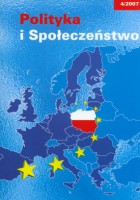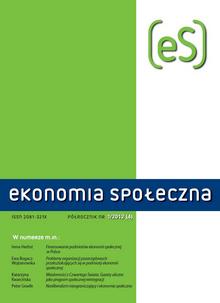
ZAGADNIENIE RÓL MIĘDZYNARODOWYCH PAŃSTW W INTERNACJOLOGII
The theory of international roles is not very popular in International Relations. At the same time it offers a range of methodological options which might increase explanatory, descriptive and even predictive potential of the discipline. Within AngloSaxon political sciences, Holsti, Walker and the Hermanns contributed the most to the development of this theory. In Poland, Z.J. Pietraś was one of its promulgators. Even though it may be very useful while explaining foreign policy of particular states, it should be noted that this theory does not belong to the mainstream of International Relations. In this paper main issues concerning the idea, classification and factors conditioning international roles played by the states are presented. The paper should be treated only as an attempt to introduce the problem or provoke a scientific discussion related to the merits of the theory in International Relations.
More...
